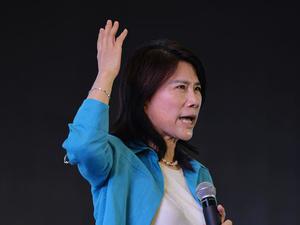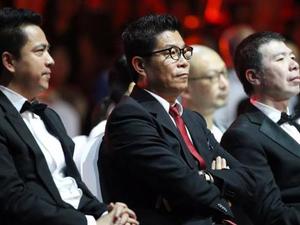新浪財經ESG評級中心提供包括資訊、報告、培訓、咨詢等在內的14項ESG服務,助力上市公司傳播ESG理念,提升ESG可持續發展表現。點擊查看【ESG評級中心服務手冊】
文 | 新浪財經ESG評級中心李欣然
在當今時代,技術的飛速發展尤其是人工智能的崛起,正在深刻地重塑商業管理和教育領域的格局。從數據驅動的決策到跨學科融合,從可持續商業實踐到終身學習的必要性,全球管理教育正站在一個全新的十字路口。面對這些前所未有的挑戰與機遇,管理教育機構如何調整戰略以適應未來的發展?如何培養出能夠應對復雜全球問題的下一代領導者?為此,新浪財經對話了歐洲管理發展基金會(European Foundation for Management Development ,簡稱EFMD)全球總裁兼中歐國際工商學院副理事長埃里克·科尼埃爾(Eric Cornuel)。
 歐洲管理發展基金會全球總裁埃里克·科尼埃爾(Eric Cornuel)
歐洲管理發展基金會全球總裁埃里克·科尼埃爾(Eric Cornuel)科尼埃爾指出,全球化和技術變革正在推動管理教育的深刻轉型。在未來5到10年,技術不僅將重塑教育與研究,還將加速跨學科融合和可持續商業實踐的發展。面對這一趨勢,EFMD通過提供認證體系和專業發展服務,支持商學院和企業實現轉型。同時,科尼埃爾表示商學院應在遵循國際高標準的基礎上,結合自身特點,量身定制獨特的教育模式。此外,科尼埃爾還指出,未來的管理人才應具備道德素養、批判性思維和終身學習意識,并展現出強烈的人文關懷與負責任的領導力。
以下為對話實錄:
Q:目前,隨著技術的進步——尤其是人工智能的快速發展——商業管理和教育領域正在發生深刻的變革。您如何看待未來5到10年全球管理教育領域的趨勢?EFMD將如何調整其戰略以適應這些趨勢?
A:技術已經成為教育領域不可或缺的重要組成部分,并且引發了連鎖反應。這一變革為我們帶來了令人振奮的機遇,能夠更廣泛地拓展終身學習的范圍,讓更多人受益于優質的教育資源。
在未來幾年,技術將繼續在多個層面重塑教育和研究。它將通過加速數據分析和建模能力,推動研究領域的創新和突破。同時,教育學也將迎來徹底變革,教師需要采用全新的教學和評估方法來適應時代的需求。這就要求教師和專業人員必須保持敏捷,及時了解不斷演變的教學設計和交付模式,以更好地指導學生的學習過程。
然而,適應技術變革的不僅僅是學術教師。學生同樣需要不斷提升自身能力,特別是在問題框架、批判性思維和輸出分析方面。人工智能技術可以為學生提供有力支持,幫助他們發展這些關鍵技能,并創造全新的學習路徑。技術變革的快速步伐意味著畢業生必須持續更新技能,以保持在勞動力市場中的競爭力。
這種動態變化為高管教育和高等教育機構帶來了巨大的發展機遇。隨著技術不斷打破傳統學科的界限,跨學科研究和教學的重要性將日益凸顯。這種整合對于應對我們面臨的復雜全球挑戰至關重要,尤其是對可持續商業實踐的迫切需求。可持續商業實踐需要綜合考慮多元化的利益相關者、日益稀缺的自然資源以及氣候變化等關鍵問題。
在EFMD,我們始終致力于支持全球管理教育的轉型。通過我們嚴格的企業管理學院和企業學習認證體系,我們建立了卓越框架,直接應對這些挑戰。此外,我們還提供廣泛的在職發展服務和培訓項目,幫助個人和機構在這個快速變化的環境中保持適應性和韌性,從而更好地應對未來的機遇與挑戰。
Q:EFMD在推動管理教育創新方面發揮了重要作用。能否分享一些您認為特別值得關注的最具創新性的項目或舉措?您如何看待這些經驗在全球的推廣?
A:我們的使命始終是推動全球管理教育的卓越發展,這一使命植根于國際視野、與實踐領域的緊密聯系,以及對道德、可持續和負責任領導力的深刻尊重。這些核心理念構成了歐洲質量改進體系(European Quality Improvement System, 簡稱EQUIS)的基礎,該體系自1997年推出以來,一直是商學院最全面、最嚴格且最具影響力的全球標準。我們自豪地看到,EQUIS已經成為該領域的“黃金標準”,為其他認證和評估方案鋪平了道路,包括我們的項目認證和企業學習系統,例如“企業學習改進流程”(Corporate Learning Improvement Process,簡稱CLIP)和“今日或明日學習影響力”(Learning Impact for Today or Tomorrow ,簡稱LIFT)。
中國在全球管理教育格局中扮演著極為重要的角色。如今,已有32所中國商學院獲得了EQUIS認證,還有兩所機構獲得了EFMD項目認證。這一成就不僅彰顯了中國商學院對卓越的堅定承諾,也體現了它們在管理教育創新方面的不懈努力。
除了認證工作,EFMD長期以來一直致力于促進全球管理教育的交流與合作。我們的旗艦會議和專業發展項目聚焦于當前的挑戰和新興趨勢,為全球教育工作者和行業領導者提供了一個交流思想、分享經驗的平臺。
另一個具有深遠影響的成就,是我們于1994年參與創辦中歐國際工商學院(China Europe International Business School,簡稱CEIBS)。作為中國政府與歐盟委員會之間的合作項目,EFMD作為歐洲合作伙伴參與其中。經過數十年的發展,CEIBS已經成為一所享譽全球的世界級教育機構,是創新、領導力和學術卓越的杰出典范,為全球管理教育的發展提供了寶貴的經驗和借鑒。
Q:EFMD的EQUIS認證體系強調尊重不同機構和文化背景的多樣性。在全球化的背景下,您如何看待管理教育中的多樣性,EFMD如何在全球范圍內平衡這種多樣性與統一的質量標準?
A:EQUIS始終致力于促進商學院之間的相互學習和最佳實踐的交流,這些商學院植根于多樣化的高等教育體系中。我們鼓勵各商學院在戰略規劃過程中清晰闡述并利用其獨特的價值主張。
EQUIS并不是強求統一,而是通過多樣性來彰顯卓越。在過去25年中,EQUIS支持各商學院在遵循高標準的國際規范的同時,量身定制其教育模式。質量并沒有一個單一、統一的定義,但有一個共同的卓越基準,以及對持續改進的集體承諾。
這種在多樣性與全球質量保障之間的平衡是EQUIS體系的核心優勢,也是其持久成功的原因。在多樣性價值受到挑戰的當下,我想強調的是,EFMD將繼續堅守其原則。
Q:作為EFMD的首席執行官,您認為現代管理教育中人才培養的最重要目標是什么?您認為未來的管理人才需要具備哪些素質?
A:在當今這個復雜多變且飛速發展的時代,人才培養的核心目標應當是塑造出能夠靈活適應變革、堅守道德底線并具備敏銳批判性思維的卓越領導者。
管理者需要在數據密集型的環境中游刃有余,而這種環境正不斷被大型語言模型等先進工具所重塑。這就要求他們必須具備批判性地評估和解讀信息的能力,在充滿不確定性的環境中做出明智且果斷的決策,甚至在數據不完整的情況下,仍能合理地承擔風險。
未來的管理者應當是多面手,能夠在跨學科和跨職能的邊界之間無縫切換。他們必須擁抱終身學習的理念,深刻認識到持續提升技能不再是可有可無的選擇,而是職業發展的必然要求。
與此同時,領導力的人文關懷同樣至關重要。道德和同理心并非僅僅是錦上添花的特質,它們是領導力的基石。優秀的管理者應當能夠激勵團隊成員,寬容他人的失誤,傳遞善意,營造一個包容且充滿成就感的工作環境,并始終堅守負責任管理所依托的核心價值觀。
以下為英文問答原文:
Q:Currently, with technological advancements—especially the rapid progress of AI—both business management and education are undergoing profound transformations. What are your views on the trends in the global management education industry over the next 5 to 10 years? How will EFMD adjust its strategy to align with these trends?
A:Technology has become an integral part of the educational landscape, creating a ripple effect in the world of work. This evolution presents exciting opportunities to extend access to lifelong learning on a much broader scale.
In the years ahead, technology will continue to reshape research by accelerating data analytics and modelling capabilities. It will also revolutionise pedagogy, requiring faculty to adopt new approaches to teaching and assessment. Faculty and professional staff must remain agile and informed about evolving instructional design and delivery models.
Yet, it's not only academic faculty who must adapt—students need to sharpen their abilities in question framing, critical thinking, and output analysis. AI can indeed support the development of these skills and generate new learning journeys. The velocity of technological change means graduates must continuously reskill to remain relevant in the workforce.
This dynamic offers a tremendous opportunity for executive and higher education institutions.
As technology dissolves traditional disciplinary boundaries, we anticipate a growing emphasis on multidisciplinary research and teaching. Such integration is essential for tackling the complex global challenges we face—most notably the urgent need for sustainable business practices that consider diverse stakeholders, dwindling natural resources, and climate change.
At EFMD, we are committed to supporting this transformation. Through our rigorous business school and corporate learning accreditation systems, we establish excellence frameworks that directly engage with these challenges. Moreover, we offer a broad range of professional development services and training to help individuals and institutions remain adaptive and resilient in this fast-changing environment.
Q:EFMD has played a significant role in driving innovation in management education. Could you share some of the most innovative projects or initiatives that you find particularly noteworthy? How do you see these experiences being promoted globally?
A:Our mission has always been to advance excellence in management education and development worldwide—anchored in international perspective, close ties to the world of practice, and a deep respect for ethical, sustainable, and responsible leadership. These pillars form the foundation of the EQUIS accreditation system, launched in 1997, which remains the most comprehensive and demanding global standard for business schools.
We are proud that EQUIS has become the gold standard in the field, paving the way for other accreditation and assessment schemes, including our programme accreditation and corporate learning systems such as the Corporate Learning Improvement Process (CLIP) and Learning Impact for Today or Tomorrow (LIFT).
China plays an important role in this global landscape. Today, 32 Chinese business schools hold EQUIS accreditation, and two more institutions have received EFMD Programme Accreditation. This reflects not only a commitment to excellence but also to innovation in management education.
Beyond accreditation, EFMD has long facilitated global exchanges in management education. Our flagship conferences and professional development programmes are designed to address current challenges and emerging trends.
Another impactful example is our role in founding CEIBS in 1994, a partnership between the Chinese government and the European Commission with EFMD as the European partner. CEIBS has grown into a world-class institution—an outstanding model of innovation, leadership, and academic excellence. It continues to shape the modern management education in China and beyond.
Q:The EFMD EQUIS accreditation system emphasises respect for the diversity of different institutions and cultural backgrounds. In the context of globalisation, how do you view diversity in management education, and how does EFMD balance this diversity with unified quality standards on a global scale?
A:EQUIS has always promoted a community of mutual learning and exchange of best practices among business schools embedded in diverse higher education systems. We encourage schools to clearly articulate and leverage their unique value propositions during the strategic planning process.
Rather than imposing uniformity, EQUIS celebrates excellence through diversity. Over the past 25 years, it has supported schools in tailoring their educational models while adhering to high international standards. There is no singular, harmonised definition of quality—but there is a shared benchmark of excellence, and a collective commitment to continuous improvement.
This balance between diversity and global quality assurance is a core strength of the EQUIS system and a reason for its enduring success. At a time when the value of diversity is being challenged, I'd like to stress that EFMD will remain committed to its principles.
Q:As the CEO of EFMD, what do you think is the most important goal for talent development in modern management education? What qualities do you believe future management talents need to possess?
A:In today's complex and rapidly evolving world, talent development must focus on cultivating adaptable, ethically grounded, and critically thinking leaders.
Managers must be able to navigate a data-rich environment, increasingly shaped by tools such as large language models. This means developing the ability to assess and interpret information critically, make sound decisions under uncertainty, and take well-calculated risks even when complete data is not available.
Future managers must be polyvalent—comfortable working across disciplines and functional boundaries. They must also embrace a lifelong learning mindset, recognising that upskilling is no longer optional but essential.
Equally important is the human side of leadership. Ethics and empathy are not just desirable traits—they are fundamental. Effective managers must inspire their teams, forgive mistakes, share benevolence, foster inclusive and fulfilling workplaces, and uphold the values that underpin responsible management.
新浪財經ESG評級中心簡介
新浪財經ESG評級中心是業內首個中文ESG專業資訊和評級聚合平臺,致力于宣傳和推廣可持續發展,責任投資,與ESG(環境、社會和公司治理)價值理念,傳播ESG的企業實踐行動和榜樣力量,推動中國ESG事業的發展,促進中國ESG評估標準的建立和企業評級的提升。
依托ESG評級中心,新浪財經發布多只ESG創新指數,為關注企業ESG表現的投資者提供更多選擇。同時,新浪財經成立中國ESG領導者組織論壇,攜手中國ESG領導企業和合作伙伴,通過環境、社會和公司治理理念,推動建立適合中國時代特征的ESG評價標準體系,促進中國資產管理行業ESG投資發展。

責任編輯:李欣然
VIP課程推薦
APP專享直播
熱門推薦
收起
24小時滾動播報最新的財經資訊和視頻,更多粉絲福利掃描二維碼關注(sinafinance)







